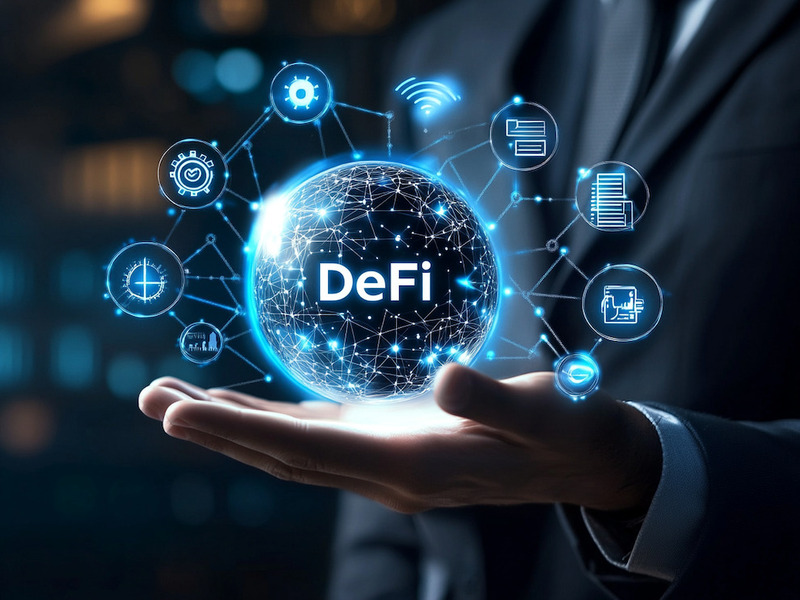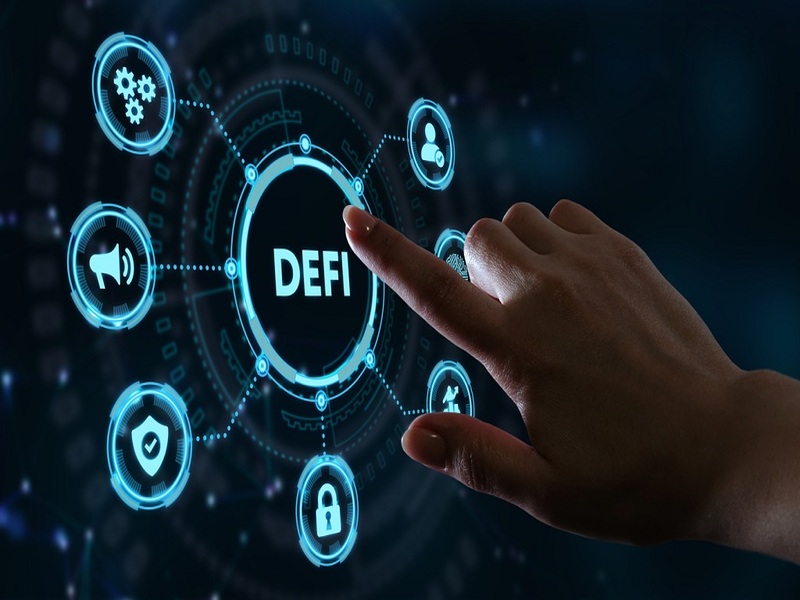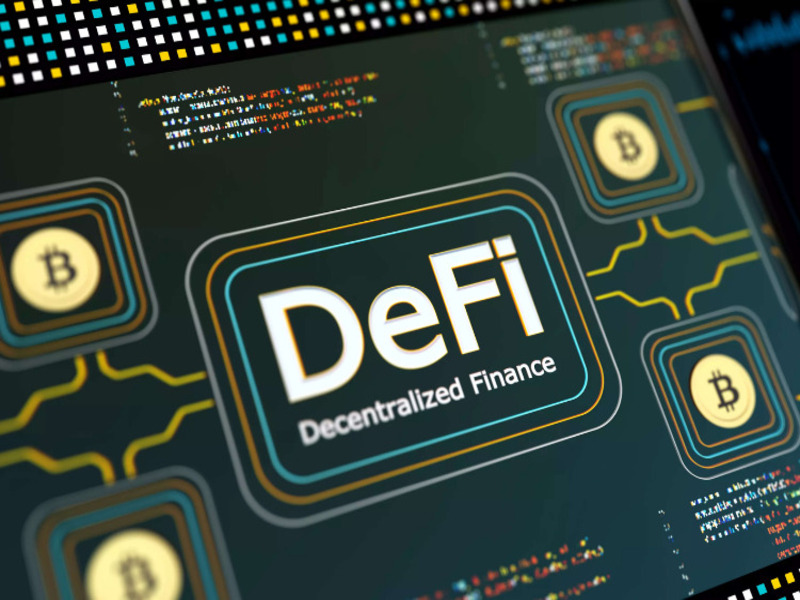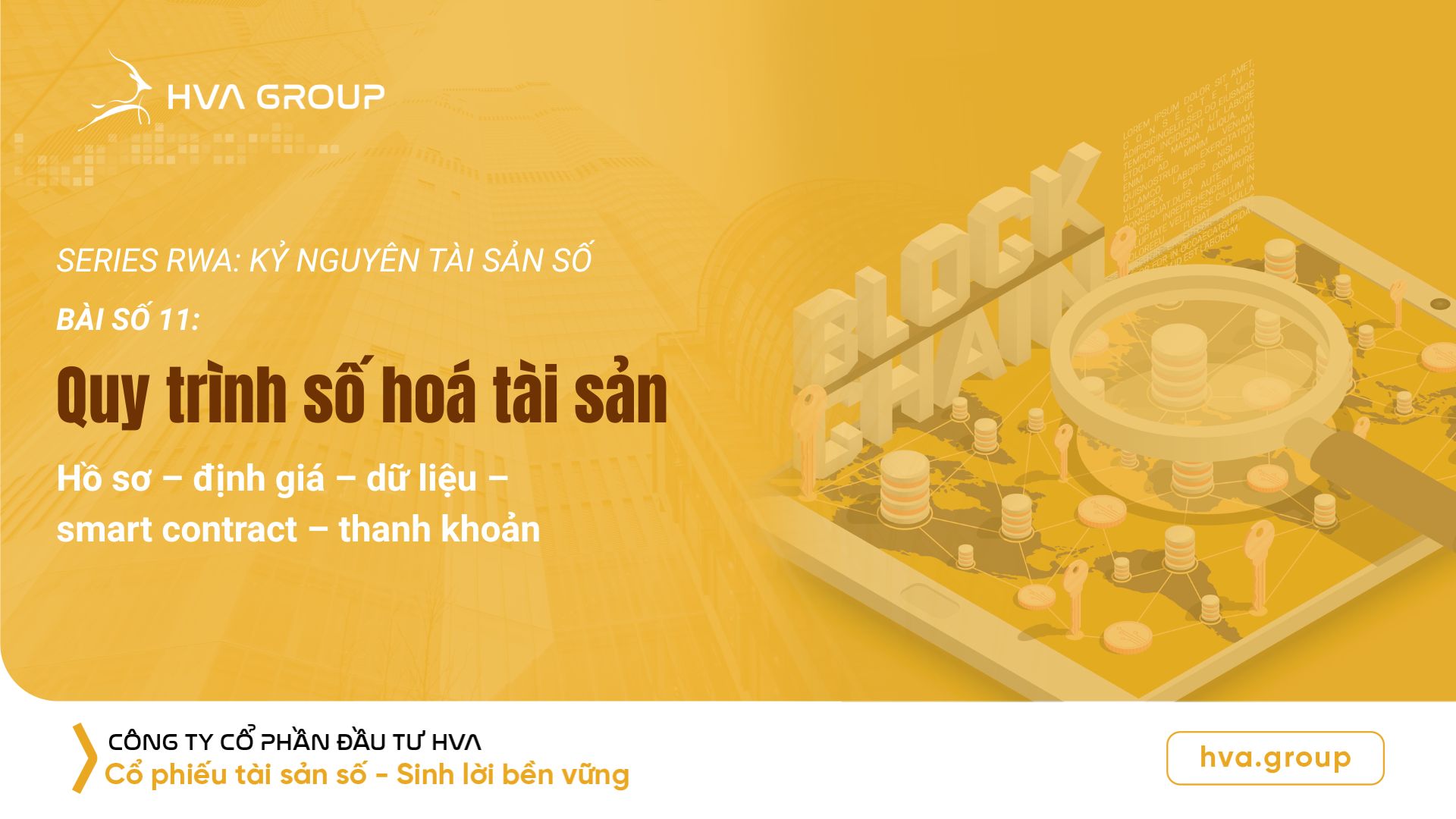What is DeFi? DeFi enables trading and asset management without intermediaries, using blockchain and smart contracts.
An Overview of DeFi
DeFi runs on blockchains, specifically Ethereum – the most popular platform for building decentralized applications. What makes DeFi different? decentralized finance DeFi is the ability to automate through smart contracts. These contracts help automatically execute financial terms without human intervention. So, What is DeFi in the modern financial landscape? It represents a new trend where the control of assets is completely in the hands of the user.

Key Components of the DeFi Ecosystem
DeFi Wallet
What is a DeFi Wallet? It is an indispensable tool in this ecosystem. DeFi wallets allow users to store their digital assets without going through any third party. Unlike traditional wallets such as those on centralized exchanges, DeFi wallets give users full control over their private keys. This ensures high security, but also requires users to protect their assets themselves.
Popular wallets such as MetaMask, Trust Wallet, and Ledger have become important bridges between users and DeFi applications. The main features of DeFi wallets include storing and trading assets, connecting to DeFi protocols, and ensuring absolute privacy.
DeFi Coins
What is DeFi Coin? These are cryptocurrencies issued on blockchain platforms that support DeFi. DeFi coins act as the “fuel” that runs DeFi protocols, often used to pay transaction fees, staking, or participate in community governance. For example, Ethereum (ETH) is the most popular coin in the DeFi ecosystem because most DeFi applications today are built on the Ethereum network.
Other coins like Binance Coin (BNB), Solana (SOL), and Avalanche (AVAX) are also considered DeFi coins due to their ability to support powerful decentralized protocols.
DeFi tokens
What are DeFi tokens? These are tokens that represent ownership or governance rights in a particular DeFi protocol. DeFi tokens are typically issued to reward users for providing liquidity or participating in the DeFi ecosystem. These tokens can be traded, staked, or used in yield farming activities to generate passive income.
Popular tokens like Uniswap (UNI), Aave (AAVE) or Compound (COMP) have helped make DeFi a promising field. DeFi token holders can vote on the direction of the project or receive rewards for participating in governance.
DeFi crypto
What is DeFi crypto? This is a broader term for all cryptocurrencies related to decentralized finance. It includes both DeFi coins and DeFi tokens, which are used to trade, provide liquidity, or participate in decentralized protocols. DeFi crypto has created a huge market with many opportunities but also many risks, especially when their values can fluctuate greatly.
DeFi Exchange
What is DeFi Exchange? A decentralized exchange (DEX) is a platform that allows users to trade digital assets directly with each other without the need for an intermediary. DEXs do not use a centralized order book, but instead employ an automated market maker (AMM) mechanism to match orders and ensure liquidity.
Prominent exchanges like Uniswap, PancakeSwap, and SushiSwap have become household names in the DeFi community. They offer a decentralized trading experience with high transparency and lower transaction costs than traditional exchanges.
Benefits and Challenges of DeFi
Benefits of DeFi
Financial Freedom: Users can control their assets and transactions without intermediaries, reducing costs and increasing security through DeFi wallets.
High Yield Potential: Activities like yield farming and staking offer returns that are superior to traditional forms of investment. DeFi tokens and DeFi crypto can create opportunities for quick returns but also come with high risks.
Transparency: Every transaction is recorded publicly on the blockchain, creating a transparent and fair financial environment, avoiding fraud.

The Challenge of DeFi
Security risks: Smart contracts can fail or be hacked, causing damage to users. The lack of centralized control increases the risk of asset loss.
High volatility: The prices of DeFi coins and DeFi tokens fluctuate frequently, bringing both great opportunities and risks to investors.
Scalability: DeFi platforms struggle with scalability, as increased user traffic leads to high transaction fees and network congestion.
The Future of DeFi
The future of DeFi is opening up many breakthrough opportunities in the financial sector. DeFi applications are not limited to lending, borrowing, or token trading, but also expanding into new areas such as decentralized insurance, digital asset management, and unsecured lending. Specifically, decentralized insurance will help users participate in insurance contracts without going through traditional insurance companies, thanks to smart contracts and DeFi protocols. This brings flexibility, transparency, and reduces costs.
In addition, DeFi will play an important role in digital asset management, allowing users to not only invest but also optimize their asset portfolios without the intervention of traditional financial institutions. This is especially beneficial for individual investors who want to have full control over their assets and investments without having to rely on banking services.
Another promising avenue is unsecured lending. DeFi platforms can help users borrow without collateral, expanding access to credit for those without valuable assets to pledge.
However, for DeFi to grow and become a part of mainstream finance, it needs to solve several issues such as security, scalability, and regulatory approval. If these challenges are overcome, DeFi could completely change the way the financial industry operates in the future, bringing greater financial freedom to users globally.

Conclude
What is DeFi? It is not just a question but also an opportunity to change the way we understand finance. With the participation of DeFi wallets, DeFi coins, DeFi tokens and decentralized exchanges, DeFi is rising to become a major trend in the cryptocurrency field. However, besides the high profit potential, users also need to be cautious of the risks and need to be fully equipped with knowledge to participate in this ecosystem safely. HVA GROUP Hopefully the above information not only helps you better understand What is DeFi. However, like any new trend, DeFi also comes with risks to consider and formulas to overcome. Therefore, building a knowledge page, deep understanding of this field will help you grasp the opportunity and participate comprehensively and effectively.











